Students find their seats as the bell rings, and a hush goes over the room as Oral Interpretation teacher, Marco Bazan, shares opportunities for tournaments around the Austin-area. Usually, a local school hosts a Speech and Debate tournament every weekend.
This weekend it’s canceled. The same was found for a tournament the previous week, and the week before that. This was the case for Bowie’s competitors throughout the fall semester.
As the 2023-2024 season’s Bowie speech and debate nears its close, questions about the future of the program are being raised by returning students. Specifically for the students competing on the Speech side, also called Oral Interpretation or “Interp” by competitors on the team, the current team’s majority upperclassmen makeup of the class mixed with the declining number of tournament opportunities pose major threats to the class’s survival in the coming years.
In a poll taken of the current Oral Interpretation class, it was revealed that 48% of the class is made of senior students, no freshmen, and less than ten sophomores. Audrey Nixon, the team’s three-year member and co-historian, shares her concerns with the projected size of the returning class.
“We have a lot of sophomores and a lot of seniors but the class has always been kind of short,” Nixon said. “I think the senior class for next year is not going to be good. The rising juniors are probably going to be sticking around but the team needs to build a lot next year.”
However, Bowie isn’t the only school in Austin Independent School District (AISD) struggling with class sizes and participation. Texas Forensic Association tournaments are hosted by schools across the state, but for schools in AISD, there have been struggles with tournaments actually happening and opportunities for teams to compete.
“It was just really hard this year for tournaments to make because nobody was signing up for them at other schools,” Nixon said. “I think it’s because there’s not really a community sense of it anymore in schools around Texas.”
Speech tournaments consist of different types of competitions. Individual events, like Humorous Interpretation and Dramatic Interpretation, consist of a student performing a ten-minute speech using scenes from plays and movies. Partner events, like Duo and Duet, are structured the same way as HI and DI, but there are more specific rules on eye contact and touch between partners. Book events like Prose and Poetry are performances of selections of articles, books, and poems.
For a tournament to happen, ten competitors need to sign up for each round. When schools around the state have smaller teams or less funding to compete, there are fewer opportunities for students across the state to compete.
“This year I tried to go to five and they just kept getting canceled,” Nixon said.
According to second-year captain, Jadon Demetri, the major problem with tournament cancellations came from the withdrawal of other schools.
“We definitely have a lot less people to compete against, other schools are really faltering,” Demetri said. “It’s just really upsetting to see this environment that I’ve known for four years and I’ve loved just slowly dwindle away.”
As the school year progresses, founder of the Bowie Speech program, Marco Bazan notes that the persistence of his team to compete as much as possible helped gain momentum in other schools, too.
“Once people got wind of the fact that there were people willing to compete from other schools, there was an upswing,” Bazan said, “The tournaments all of January have been making, even without us competing. The other schools in the AISD area have finally gotten an opportunity to get their teams up and running. I think this was just a weird year for tournament availability; it’s going to get better.”
Another issue noted with the popularity of Oral Interpretation has been the motivation after the pandemic. As the only member of the team to have seen the class online and in person, Jadon Demetri believes that the transition from Zoom to class in-person correlates with the lowering of class sizes.
“You can definitely see the damage in the community afterwards,” Demetri said. “It wasn’t the most fun because you couldn’t perform for other people, I think it caused everyone to slowly fade out.”
The struggles of motivation in the program have ebbed in the pandemic and post-pandemic world for competitors and schools.
“During the pandemic, there were so many good kids that just weren’t enjoying it. There wasn’t this idea of the live performance aspect of it, which was challenging for many people to get past.” said Bazan, “I think the first year back was weird because people were getting acclimated to the new environment. People started the season really motivated, and then four tournaments in a row got canceled. You’d get your heart-set and then you’d be disappointed. It was understandable that the team was bummed out and hard to motivate.”
A major problem with the program’s accessibility comes with the Recapture budget plan. This bill takes half of AISD’s funding to distribute to lower property-valued districts.
“A lot of bigger districts like Austin ISD have to make cuts, and Speech and Debate becomes probably the easiest thing because it’s a smaller program to begin with,” said Bazan, “Speech and debate costs money, going to tournaments and traveling. The financial piece of the program becomes the easiest thing to cut.”
As choice sheets pop up and rising middle schoolers face class selections, speech students extend the activity to younger audiences.
“I’m going to be traveling to middle schools and just trying to build up the program again,” Demetri said. With new speech and debate classes offered at middle school, underclassman interest is projected to grow.
“Gorzycki now has a developed debate program and Mrs. Zimmerman, a former theatre teacher, is doing that, so there’s a lot of interp stuff happening,” said Bazan, “I think that’s where that interest from the incoming freshmen is coming from.” Because the majority of Gorzycki students plan on attending Bowie for high school, the emergence of programs such as Gorzycki’s debate classes has the potential to boost numbers in oral interpretation classes in the coming years.
However, no matter what setbacks the team has faced, whether it be reduced budget, lack of tournament opportunities, or declining class sizes, the love for the extracurricular from the members of the team is adamant, and their determination to keep the activity alive is clear.
“This activity is what kept me in high school and kept me engaged.” Bazan said. “It isn’t always for everyone, but it’s definitely good for a lot of people that enjoy constant feedback, enjoy competition, and enjoy the idea of winning and competing and networking outside of the Bowie community. It’s a really good opportunity.”




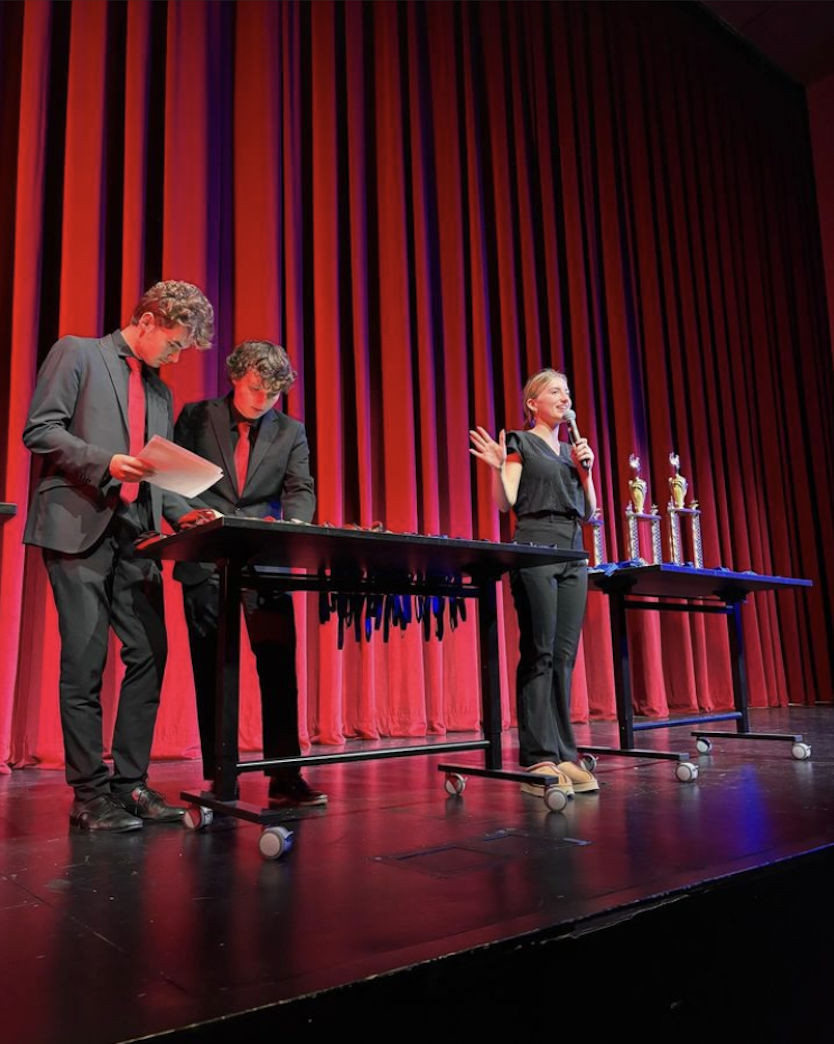
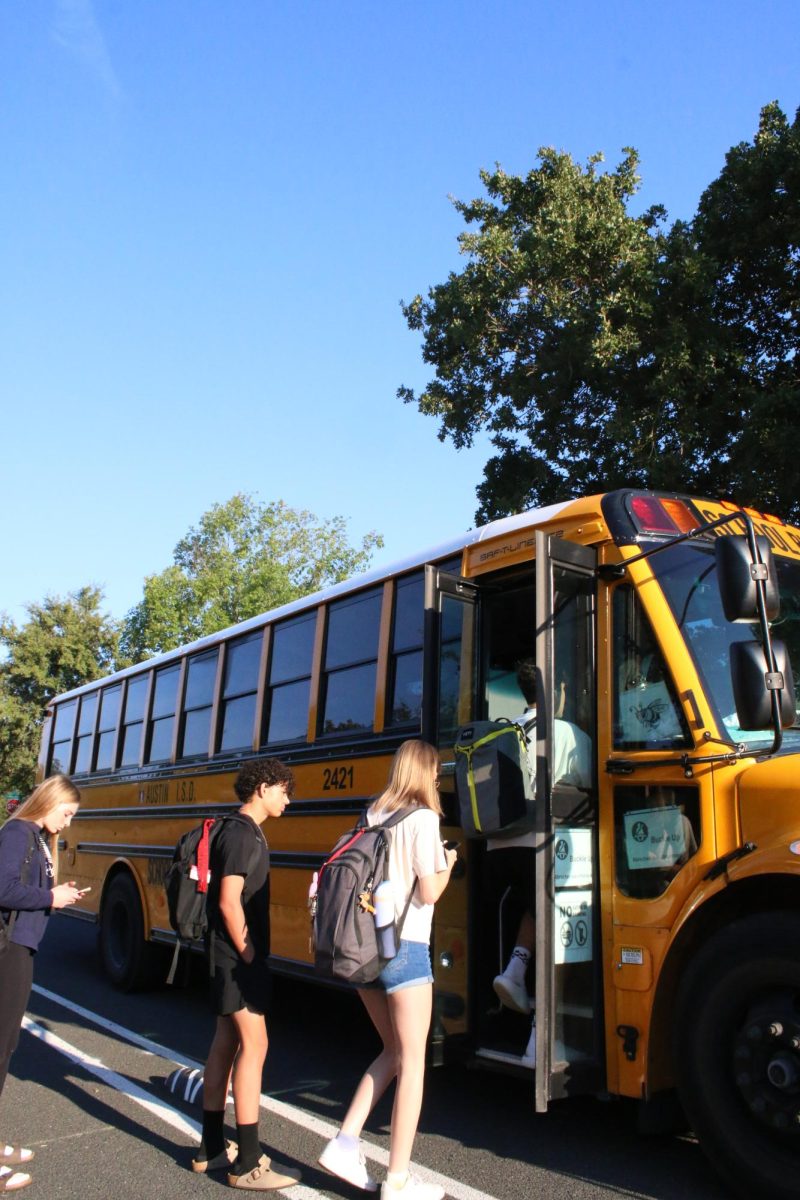
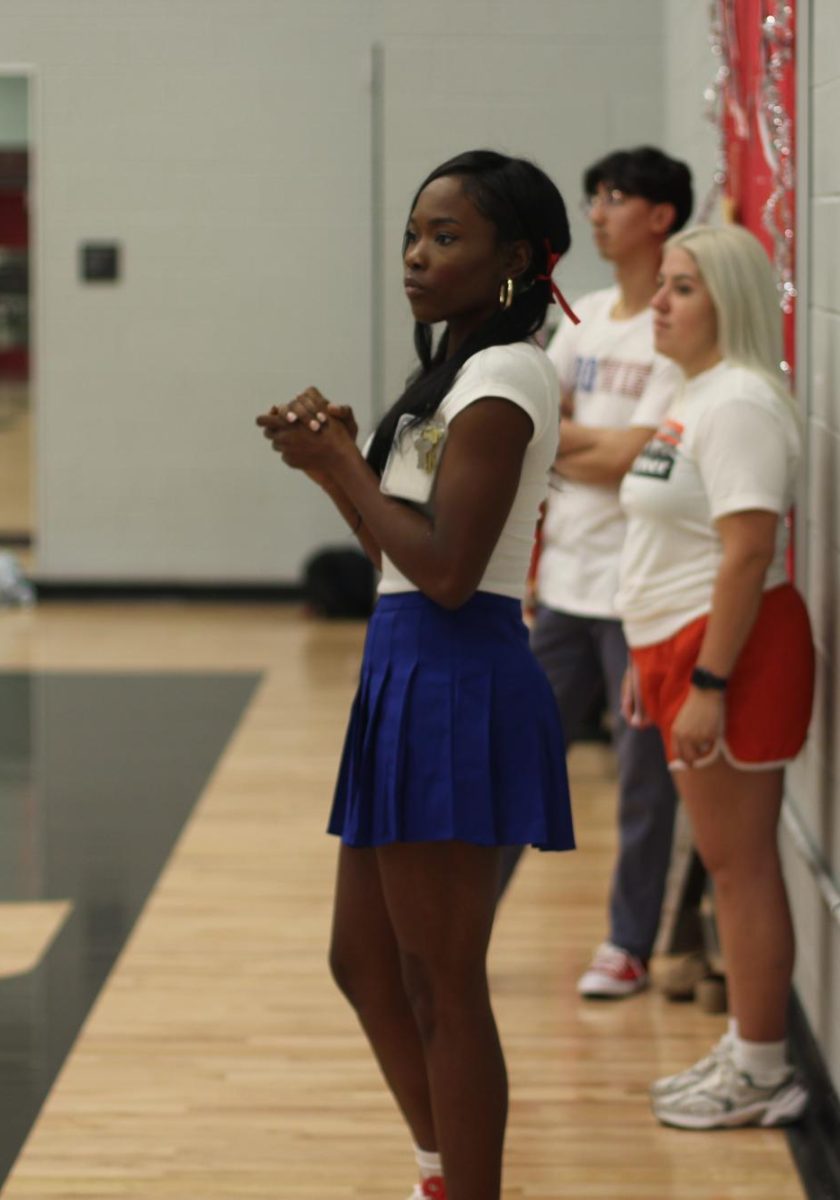
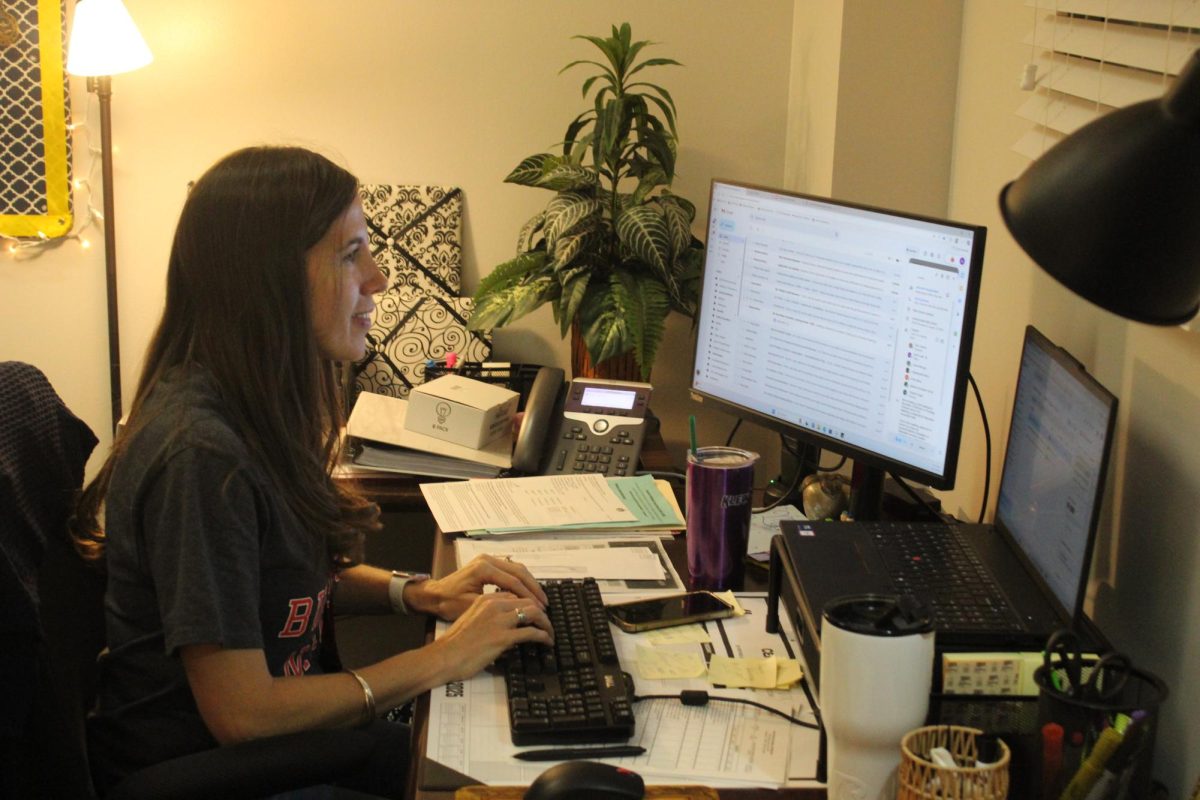
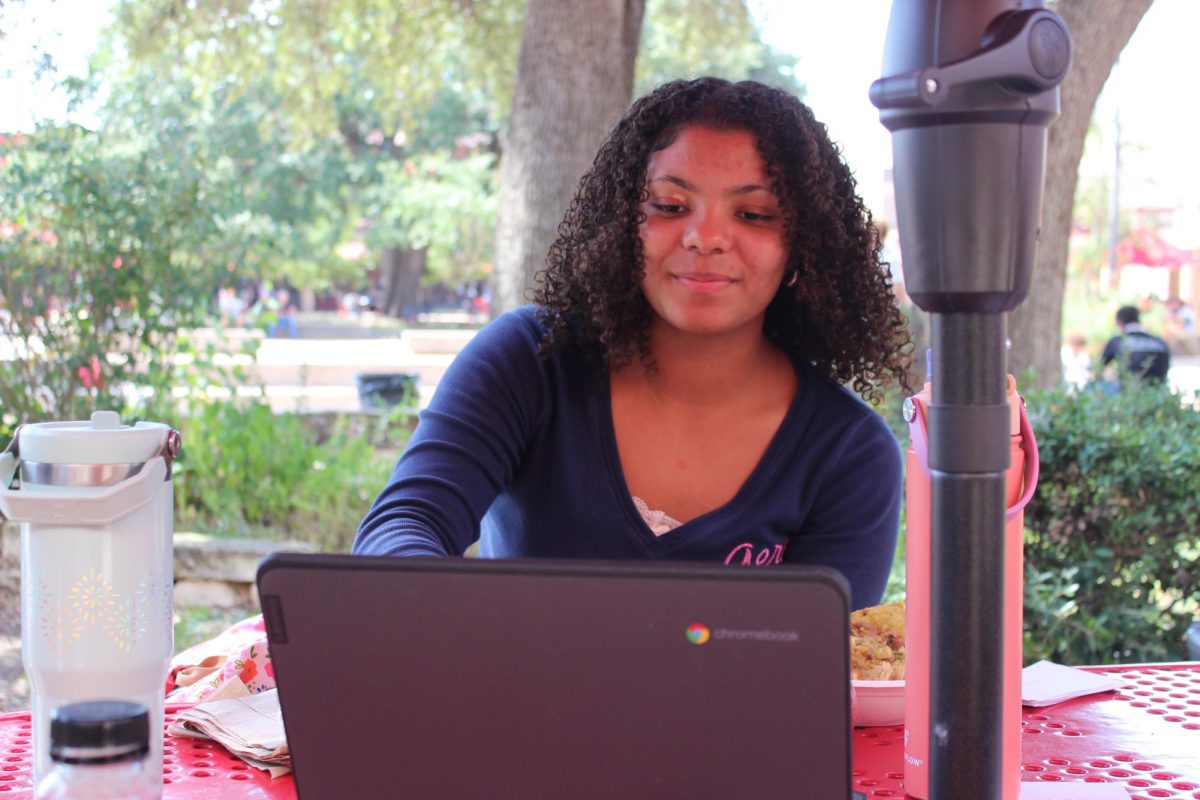
Kristin • Feb 18, 2024 at 10:46 am
Great article! It is so interesting to read about how the pandemic affected a school program like this.
Alyson Kirchner • Feb 17, 2024 at 10:02 pm
This is happening in so many academic contests- don’t let it go- these events and extracurriculars make students exceptional.
Dee Wallis • Feb 17, 2024 at 7:08 pm
Bravo! Excellent article- very well-written and informative.
Jo • Feb 17, 2024 at 6:38 pm
Great article! We need to keep this program alive!
Sally • Feb 17, 2024 at 6:35 pm
Speech & Debate is such an important program!
Kate Vega • Feb 17, 2024 at 6:35 pm
This program is wonderful!! Don’t let it go!!!!
jennifer • Feb 16, 2024 at 5:01 pm
next paycheck is going to this program!
clara • Feb 16, 2024 at 4:59 pm
great article! you are going places! save oral interp!
MEW • Feb 16, 2024 at 1:58 pm
Good article. Program has been around for a long time. Learned a lot about potential reasons for the decline in programs across AISD.
Clayton • Feb 16, 2024 at 1:27 pm
So informative! I cannot believe they are doing this to free speech!
Caroline • Feb 16, 2024 at 11:47 am
Wow, poor Bowie Speech! Great article you should promote this author @dispatch